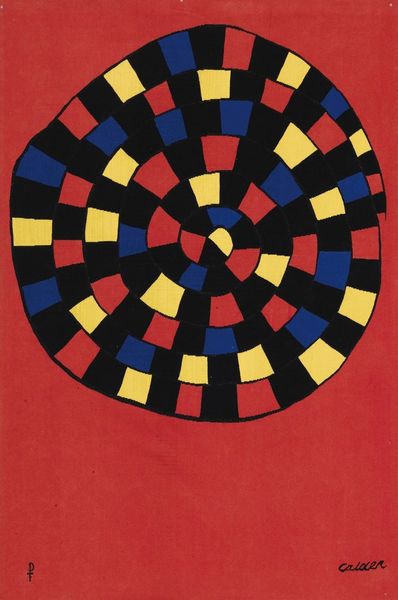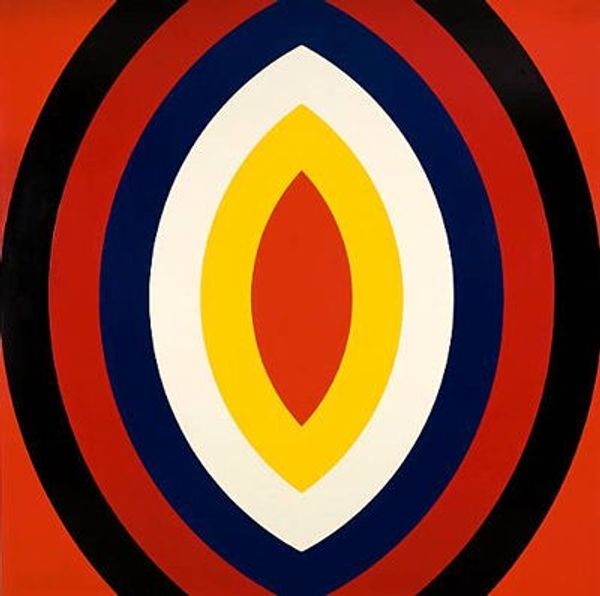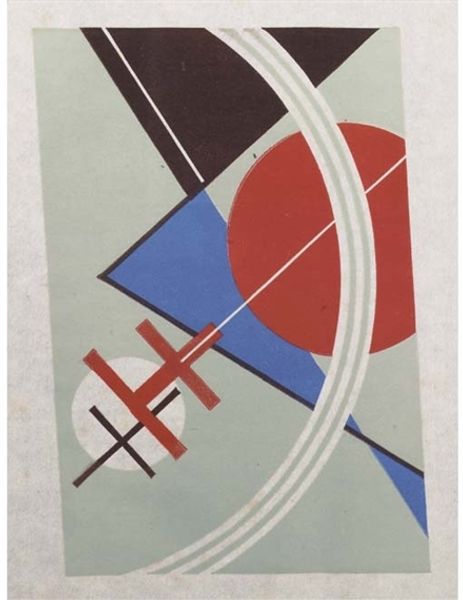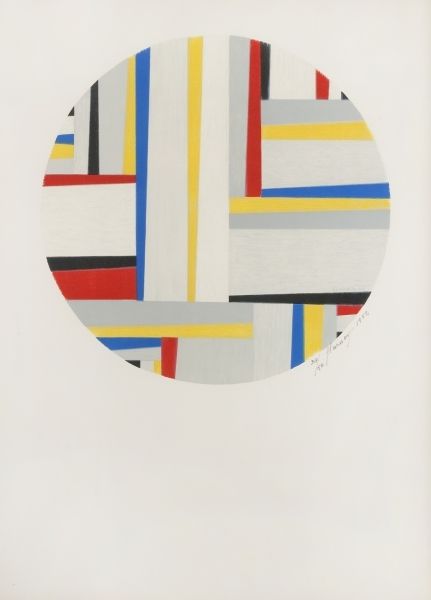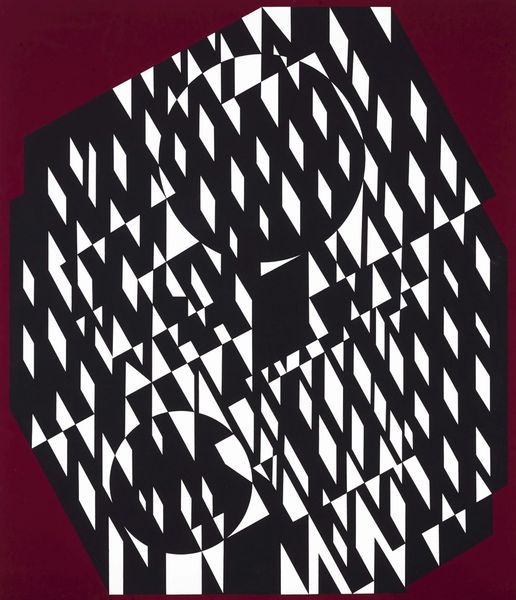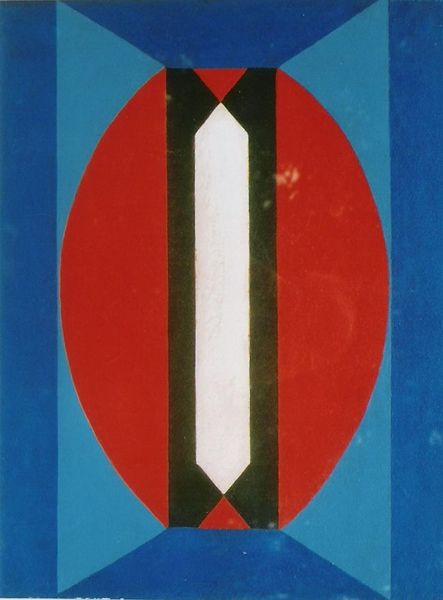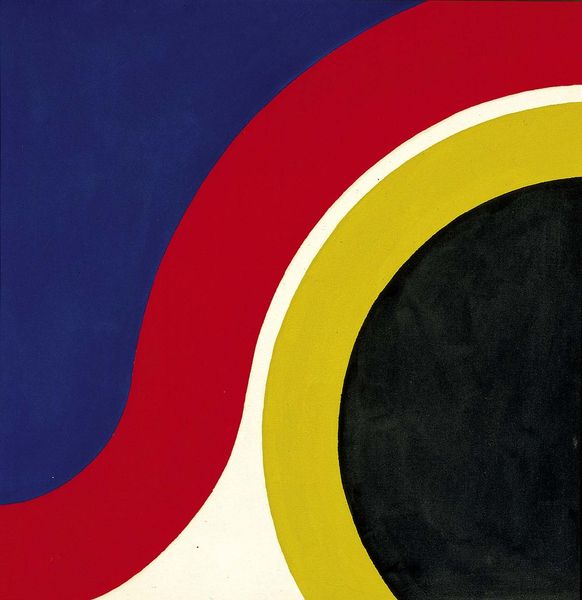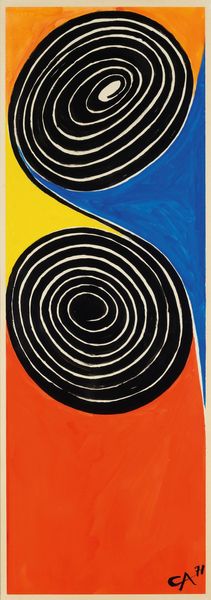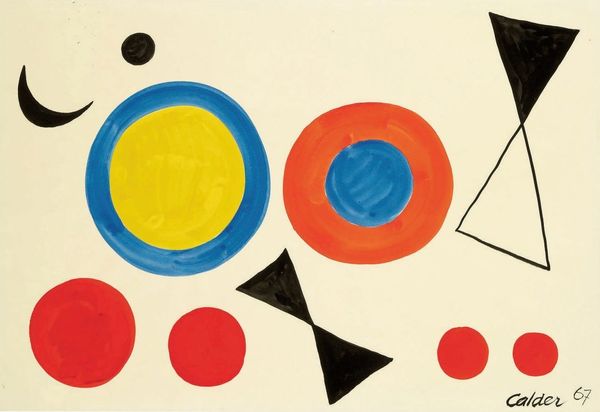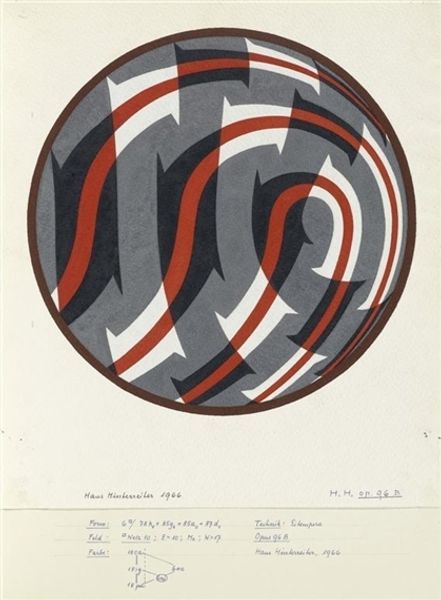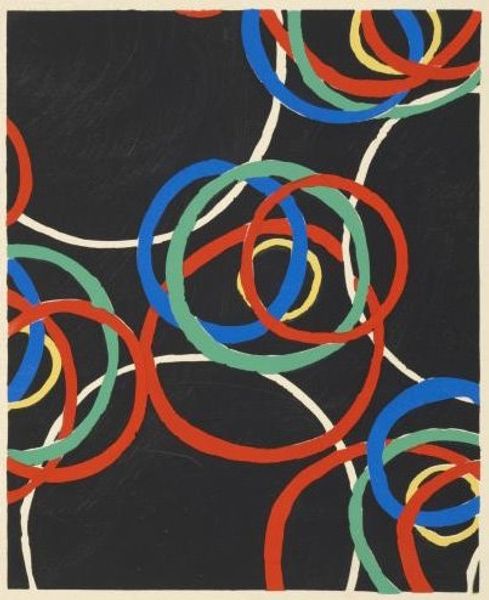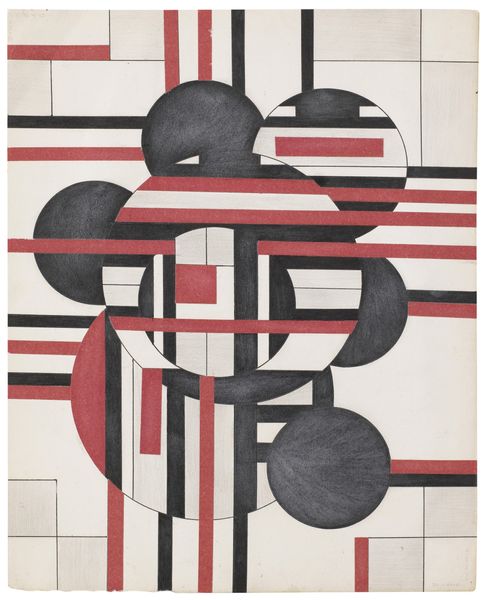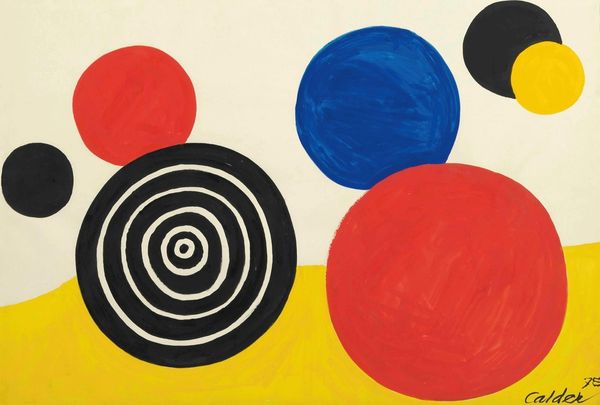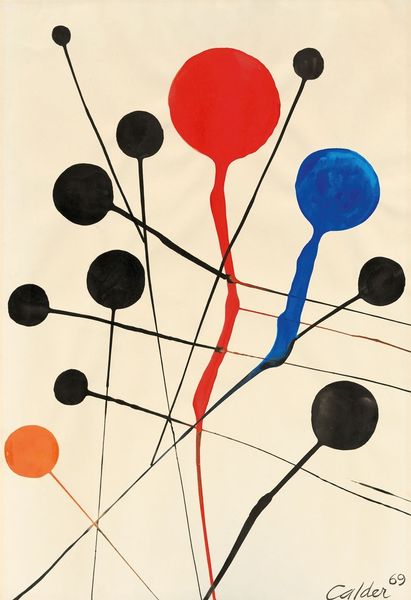
acrylic-paint
#
op-art
#
op art
#
acrylic-paint
#
form
#
geometric
#
geometric-abstraction
#
modernism
Copyright: Hans Hinterreiter,Fair Use
Editor: Here we have Hans Hinterreiter’s "Studie zu Opus 135," created in 1961. It's an acrylic painting that strikes me as both playful and strangely unsettling. With all of those geometric forms, I can't quite make up my mind if it has a centrifugal or centripetal force. What's your take on this intriguing work? Curator: I'm drawn to how Hinterreiter utilizes a seemingly simple vocabulary of geometric shapes and primary colors to explore perception. Notice how the circular form echoes mandala-like structures, symbols representing wholeness in various cultures, from Buddhism to Jungian psychology. What emotions arise when you consider that possible association? Editor: It's interesting you mention mandalas! The geometry could represent the universe in order and chaos. But it still feels very modern in its execution, despite that ancient symbolic reference. Curator: Exactly. Consider the context of the 1960s, where artists experimented with abstraction to reflect the rapidly changing world. The geometric shapes are quite clinical. Are they suggesting our brains are also hard-wired machines like computers processing the world in calculations? Editor: Perhaps. It's also interesting how this Op-Art piece works with shape to make you see and feel differently, kind of like how icons of saints use light to instill certain religious feelings in their audience. Curator: Precisely! Visual art operates much like memory; forms and colours serve as vessels for emotional weight. And, while technology may change, these fundamental responses continue to endure, right? Editor: Absolutely. I had not made that connection. This definitely shows how shapes and colours impact my experience of viewing any painting. Curator: Indeed, understanding symbols helps to appreciate how much the past remains a vibrant, resonant part of our present.
Comments
No comments
Be the first to comment and join the conversation on the ultimate creative platform.
